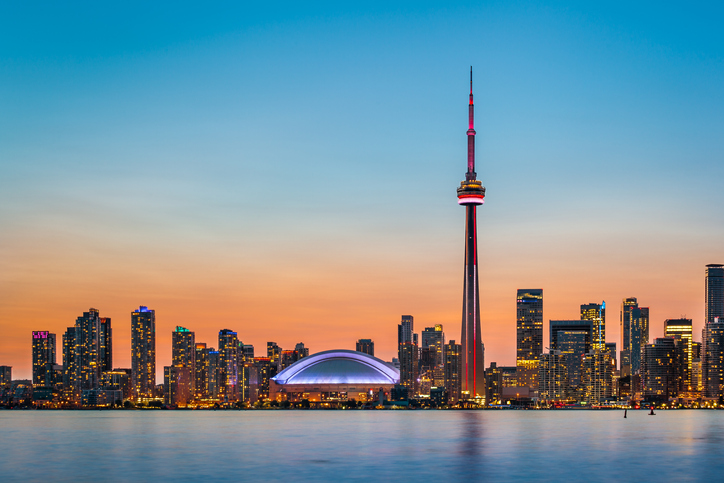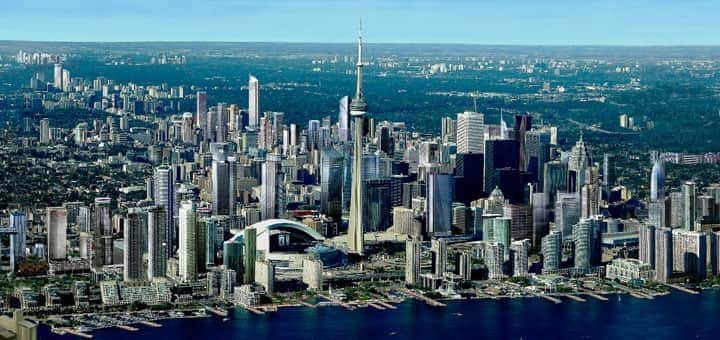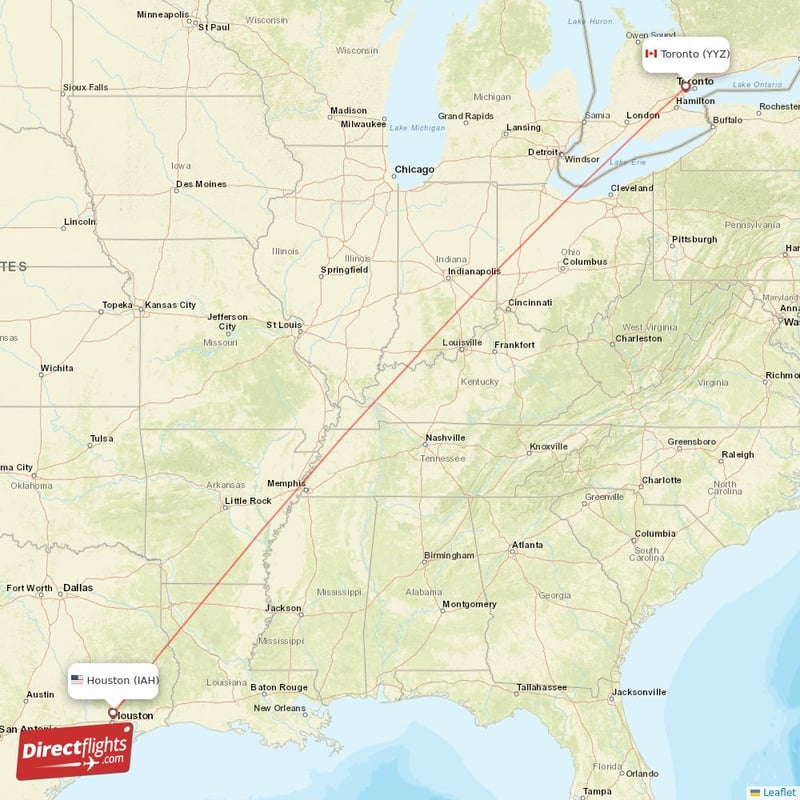Moving From Houston To Toronto
As the fourth largest city in the United States, Houston offers a thriving cultural scene, a diverse economy, and a vibrant quality of life. However, for some, the allure of Toronto, Canada's largest city, proves too great to resist. With its stunning natural beauty, world-class amenities, and unparalleled diversity, Toronto beckons those seeking a fresh start. If you're considering making the move from Houston to Toronto, you're likely wondering what to expect. From navigating the immigration process to finding the perfect neighborhood, this article will guide you through the essential steps to make your relocation a success.

A New Chapter: Moving from Houston to Toronto
Moving from Houston to Toronto can be an exciting but overwhelming experience. As you prepare to leave the southern hospitality of Texas behind and embark on a new journey in Ontario, Canada, it's essential to be aware of the significant differences between these two cities. From climate and cost of living to job opportunities and cultural experiences, here's what you need to know to make a successful transition.
Climate: Preparing for the Great White North
Toronto's climate is vastly different from Houston's. Be prepared for cold winters, with average temperatures ranging from 14°F to 30°F (-10°C to -1°C), and warm summers, with temperatures between 64°F to 82°F (18°C to 28°C). In contrast, Houston's climate is characterized by hot and humid summers, with temperatures often reaching over 90°F (32°C). If you're not accustomed to cold weather, invest in warm clothing, including a good coat, gloves, and thermals.
Cost of Living: What to Expect
The cost of living in Toronto is significantly higher than in Houston. Rent, in particular, can be steep, with the average rent for a one-bedroom apartment exceeding $2,000 per month. Food prices are also higher, with the average cost of a meal in a mid-range restaurant around $20-$30 per person. However, Toronto offers a more comprehensive public transportation system, which can help reduce transportation costs.
Job Opportunities: Finding Work in Toronto
Toronto is a hub for many industries, including finance, technology, and healthcare. While the job market can be competitive, there are plenty of opportunities available. If you're moving with a job lined up, be sure to research the company and the industry. If you're looking for work, consider networking and leveraging online job boards to find the right fit.
Culture Shock: Adapting to Toronto's Diverse Community
Toronto is one of the most multicultural cities in the world, with over 50% of its residents born outside of Canada. Be prepared to experience a diverse range of cultures, cuisines, and traditions. From Chinatown to Little Italy, Toronto's neighborhoods offer a unique blend of international flavors. Embrace the diversity and try new things – you might be surprised at what you discover!
Logistics: Planning Your Move
Planning your move from Houston to Toronto requires careful consideration. Research moving companies, and be sure to obtain quotes from multiple providers. Consider the costs of shipping your belongings, and whether it's more cost-effective to purchase new items once you arrive in Toronto. Don't forget to update your address, transfer your driver's license, and register for healthcare in Ontario.
| City | Average Temperature (°F) | Cost of Living Index | Average Rent (1-bedroom apt) |
|---|---|---|---|
| Houston, TX | 69.4 | 88.3 | $1,100 |
| Toronto, ON | 44.4 | 74.2 | $2,200 |
How much does it cost to move from Texas to Canada?

The cost of moving from Texas to Canada can vary greatly depending on several factors, including the distance, weight, and type of items being moved, as well as the services required. On average, the total cost of a move from Texas to Canada can range from $2,000 to $10,000 or more.
Factors Affecting the Cost of Moving from Texas to Canada
Several factors can influence the final cost of moving from Texas to Canada. These include:
- Distance: The farther the distance, the higher the cost. Moving from Texas to Canada can cover a significant distance, resulting in higher transportation costs.
- Weight and volume of items: The weight and volume of the items being moved also impact the cost. More items or heavier items will require larger or more vehicles, increasing the cost.
- Type of items: Specialized items, such as pianos or large machinery, may require additional equipment or handling, adding to the overall cost.
Services and Costs Associated with Moving from Texas to Canada
There are various services that may be required when moving from Texas to Canada, each with its own cost. These include:
- Packing services: Professional packing services can range from $200 to $2,000, depending on the size of the move and the number of items being packed.
- Loading and unloading services: These services can range from $100 to $500, depending on the size of the move and the complexity of the loading and unloading process.
- Customs clearance and border fees: When moving across the border from the US to Canada, there may be customs clearance fees and other border fees, which can range from $100 to $500.
Tips for Reducing the Cost of Moving from Texas to Canada
To reduce the cost of moving from Texas to Canada, consider the following tips:
- Downsize and declutter: Reducing the amount of items being moved can significantly lower the overall cost.
- Choose the right moving company: Research and compare moving companies to find the best rate for your specific move.
- Consider a portable moving container: Portable moving containers can be a cost-effective option for smaller moves.
Is Toronto a good city to move to?

Why Toronto is a Popular Destination for Expats
Toronto is considered one of the most multicultural cities in the world, with over 50% of its residents born outside of Canada. This diversity is reflected in its vibrant neighborhoods, cultural events, and culinary scene. Toronto is also a hub for business and finance, with the Toronto Stock Exchange being one of the largest in North America. As a result, the city attracts professionals and entrepreneurs from all over the world.
Ol:
Lifestyle and Amenities
Toronto offers a high quality of life, with access to world-class amenities and services. The city has a comprehensive public transportation system, making it easy to get around without a car. Toronto is also home to many parks and green spaces, including the popular High Park and the Waterfront Trail. Additionally, the city has a thriving arts and culture scene, with numerous museums, galleries, and performance venues.
Ol:
Job Market and Economy
Toronto has a strong and diverse economy, with a range of industries driving growth and innovation. The city is a hub for tech and start-ups, with many major companies setting up shop in the area. Toronto is also a major center for finance and banking, with many international banks and financial institutions operating in the city. Additionally, the city has a thriving healthcare and biotech sector, with several world-class hospitals and research institutions.
Ol:
Can I move to Toronto?
/)
Moving to Toronto can be a great opportunity for individuals seeking a new adventure, career growth, or a change of scenery. However, before making the move, it's essential to consider various factors to ensure a smooth transition.
Eligibility and Immigration Requirements
To move to Toronto, you'll need to meet the eligibility and immigration requirements set by the Canadian government. This includes:
- Obtaining a valid visa or Electronic Travel Authorization (eTA) depending on your country of origin
- Meeting the required language proficiency in English or French
- Having a job offer or being accepted into a Canadian educational institution
- Providing proof of sufficient funds to support yourself and any dependents
Cost of Living and Housing
Toronto is considered one of the most expensive cities in Canada, and the cost of living can be high. You should consider:
- The average rent for a one-bedroom apartment is around $2,000 CAD per month
- Food prices are higher in Toronto compared to other Canadian cities
- Transportation costs, including public transit and parking fees
- Healthcare and insurance costs, as Canada's public healthcare system may not cover all expenses
Job Opportunities and Career Growth
Toronto is a hub for various industries, including finance, technology, and healthcare. To increase your chances of finding a job, consider:
- Networking and making connections in your industry
- Having a strong resume and online presence, including LinkedIn
- Researching job opportunities and salary ranges in your field
- Considering freelancing or contract work as a way to get your foot in the door
How far is Houston from Toronto by plane?

The distance from Houston to Toronto by plane is approximately 1,770 miles (2,850 kilometers). The flight duration is around 3 hours and 30 minutes to 4 hours and 30 minutes, depending on the airline, flight route, and weather conditions.
Flight Routes and Airlines
There are several flight routes and airlines that operate direct or connecting flights from Houston to Toronto. Some of the major airlines that operate on this route include:
- Air Canada: Offers multiple daily direct flights from Houston George Bush Intercontinental Airport (IAH) to Toronto Pearson International Airport (YYZ).
- United Airlines: Operates multiple daily direct flights from IAH to YYZ, as well as connecting flights with layovers in cities like Chicago or Washington, D.C.
- American Airlines: Offers connecting flights from IAH to YYZ with layovers in cities like Dallas or Philadelphia.
Flight Schedule and Frequency
The flight schedule and frequency from Houston to Toronto vary depending on the airline, time of year, and demand. However, here is a general idea of what you can expect:
- There are typically multiple daily direct flights from IAH to YYZ, with departure times ranging from early morning to late evening.
- Connecting flights may have more varied departure and arrival times, depending on the layover city and duration.
- Some airlines may offer more frequent flights during peak travel seasons, such as summer or holidays.
Booking and Planning Tips
Here are some tips to keep in mind when booking and planning your flight from Houston to Toronto:
- <strong(Book in advance: Prices for flights tend to increase closer to the departure date, so booking early can help you save money.
- Be flexible with dates: If you have flexibility in your travel plans, consider flying on off-peak days or during the off-season to get better deals.
- Check for layovers: If you're booking a connecting flight, make sure to check the layover duration and city to ensure it fits your travel plans.
FAQ
What are the main differences I should expect when moving from Houston to Toronto?
When moving from Houston to Toronto, you should expect significant changes in climate and culture. Houston is known for its hot and humid summers, while Toronto experiences cold winters and mild summers. Toronto's climate is also influenced by its proximity to Lake Ontario, which can lead to lake-effect snowfall in the winter. Additionally, Toronto is a more urban and cosmopolitan city, with a diverse population and a stronger sense of community, whereas Houston is known for its car-friendly culture and sprawling suburbs.
How do I prepare for the cost of living in Toronto compared to Houston?
The cost of living in Toronto is generally higher than in Houston, especially when it comes to housing and transportation costs. The average rent for a one-bedroom apartment in Toronto is around $2,000 per month, compared to around $1,200 in Houston. Additionally, Toronto has a higher sales tax rate than Houston, and food prices tend to be higher as well. However, Toronto also offers a more comprehensive public transportation system, which can help offset the cost of owning a car. To prepare, it's essential to budget carefully and research the costs of living in Toronto to ensure a smooth transition.
What are the job opportunities like in Toronto compared to Houston?
Toronto is a major hub for various industries, including finance, technology, and healthcare, offering a wide range of job opportunities. The city is home to many multinational companies and startups, providing a diverse range of career paths. While Houston is also a significant economic center, Toronto's job market is more diverse and less reliant on a single industry. Additionally, Toronto has a stronger startup ecosystem, with many resources available for entrepreneurs and small business owners. However, the job market in Toronto can be competitive, and it's essential to have a strong network and job search strategy to succeed.
As a newcomer to Toronto, navigating the Canadian healthcare system can be overwhelming. The good news is that Canada's public healthcare system is generally considered excellent, with most medical services covered by the government-funded Ontario Health Insurance Plan (OHIP). However, there may be some delays and wait times for non-emergency procedures. It's essential to register for OHIP as soon as possible after arriving in Toronto and to find a family doctor who can provide primary care and referrals to specialists. Additionally, private health insurance may be necessary to cover services not included in OHIP, such as dental care and prescription medications.